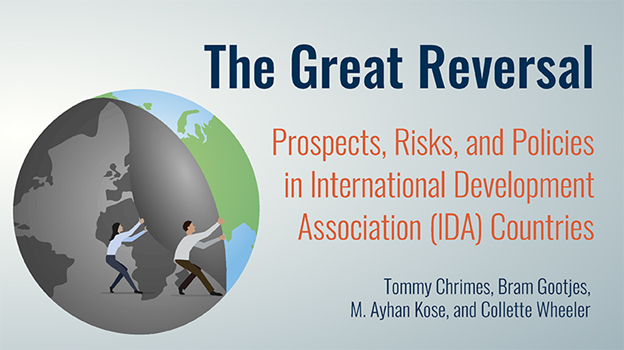Even as we continue to delude ourselves through palliatives which suggest that globally, the world is experiencing incremental improvements in the global condition in which people live, the World Bank is releasing its own research-based findings that challenge the ‘things-are-getting-better’ notion that other schools of thought may be promoting.
Recently, in a seeming pushback against the lenses of optimism through which other institutions view the human condition, the World Bank has asserted that half of the world’s 75 poorest countries are experiencing a widening income gap with the wealthiest ones. Significantly, the Bank asserts that this is ‘the first time this century’ that this phenomenon is occurring and that the alarming news has triggered a reaction from the international financial institution that includes raising an awareness that seeks to call global attention to what it suggests is a worsening problem.
Here, the Bank ‘throws in’ statistics seemingly designed to underscore the validity of its disclosure, asserting that of the aforementioned 75 poorest countries, “half are in Africa, 14 are in East Asia, and eight are situated in Latin America and the Caribbean.” The revelation, reportedly, goes further, revealing that one-third of affected countries are actually poorer today than they were prior to the onslaught of the coronavirus pandemic. The report goes further, that half of the countries that are victims of the developmental meltdown, are either unable to service their debts or are at high risk of not being able to do so.
The desired response, the report says, reposes in the pursuit of ambitious policies to accelerate development as well as stronger financial backing from the global community. The report, titled The Great Reversal: Prospects, Risks, and Policies in International Development Association Countries, offers what the Bank says is the first comprehensive look at the opportunities and risks confronting the 75 countries eligible for either grants and zero to low-interest loans from the World Bank’s International Development Association (IDA). These countries, the report adds, are “home to a quarter of humanity—1.9 billion people.”
Significantly, the report notes that these countries are rich in natural resources, enjoy high potential for solar-energy generation, and boast a large reservoir of mineral deposits that could be crucial for the world’s transition to clean energy. “IDA countries have several important demographic and resource advantages that could—if leveraged effectively—help close development gaps. Reaping the benefits of their advantages and meeting investment needs will require them to undertake comprehensive policy measures to bolster fiscal and monetary frameworks, enhance human capital development, and improve the quality of institutions. These policies should be complemented with significant and consistent international financial support as well as strong cooperation on global policy issues,” a release deriving from the study says.






